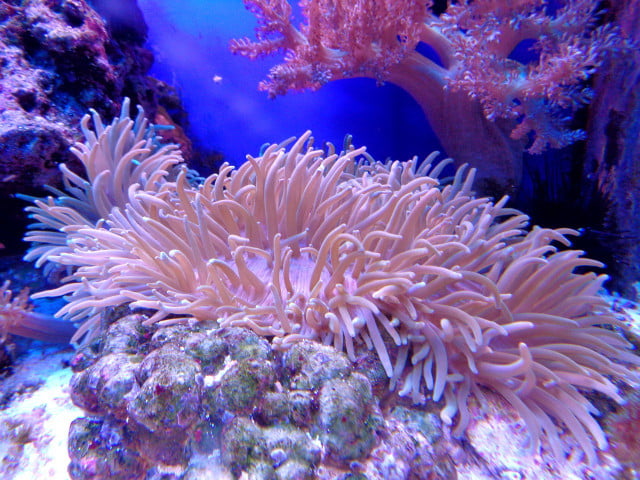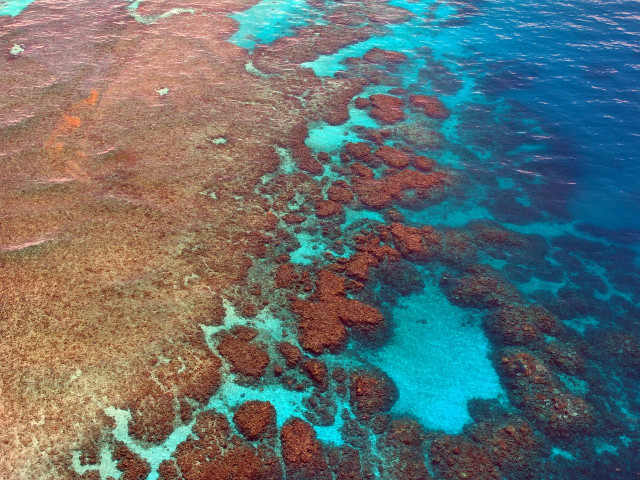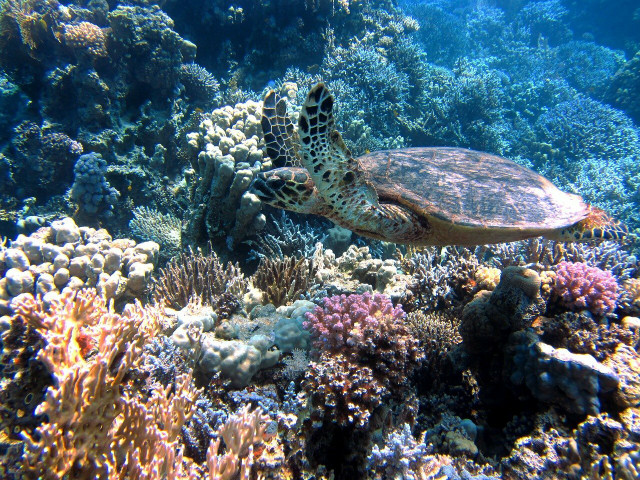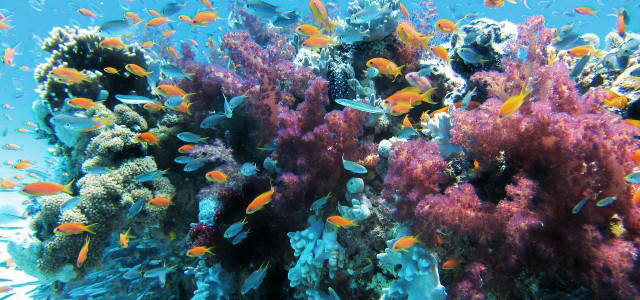Climate change is the greatest global threat to the coral reef ecosystem. Keep reading to find out what corals eat and how it is affected by climate change.
What is Coral and Where Does it Live?
Corals are invertebrate animals that belong to a large group of colourful animals called ‘Cnidaria’, along with other animals such as jelly fish and sea anemones. There are around six thousand known species of coral around the world.
Some species grow in tropical, warm, shallow waters near coastlines, whilst others grow in dark, deep waters. Corals are known as colonial organisms, because many individual creatures live and grow while connected to each other. They make up large coral colonies called ‘coral polyps’. Living in colonies means that corals are dependent on one another for survival.
A 2018 report by the Intergovernmental Panel on Climate Change predicts that 1.5 degrees Celsius of global warming, which the world is predicted to reach by 2030, will mean that 99% of coral reefs will experience heatwaves that are too frequent for them to recover.
What do Corals Eat, and How Do They Eat?

(Foto: CC0 / Pixabay / AliceKeyStudio)
There are two different ways that corals feed. One way that corals eat is by catching their prey. Corals eat zooplankton, tiny plant organisms that float in the water. At night, they feed by capturing and digesting the zooplankton, using their long tentacles.
The second way that corals eat is by getting nourishment from zooxanthellae, which are algae living in the tissue of coral. The algae is what gives coral its bright colour, and they live within the large coral colonies (coral polyps). The algae photosynthesise by using sunlight to transform light energy into chemical energy, in order to provide nourishment for the coral. In return, the coral provide the zooxanthellae with carbon dioxide, and a structure for them to call home.
How Does Climate Change Affect the Way Corals Eat?



(Foto: CC0 / Pixabay / steinchen)
Anthropocentric climate change, including rising temperatures and increased UV radiation, causes corals to release the colourful algae from their tissues as they become stressed by pollution and increasing water temperatures. Releasing the algae bleaches the coral, which makes it appear white. Many reef-building coral get most of their nutrients from zooxanthellae in their algae, so they loose their main source of food.
Iconic reefs such as the Great Barrier Reef in Australia and the Northwestern Hawaiian Islands in the United States have all experienced their worst bleaching on record. According to the International Union for Conservation of Nature, the bleaching of the Great Barrier Reef in 2016 and 2017 killed around 50 percent of its corals. As well as mass bleaching, rising temperatures are also responsible for infectious disease outbreaks in coral. For example, a study by the International Coral Reef Initiative has found that between 30 percent and 80 percent of coral in remote reefs off southwest Puerto Rico have declined primarily due to diseases that have killed the dominant reef-building species.
How Is This Connected to the Larger Conversation Around Corals Dying?



(Foto: CC0 / Pixabay / lpittman)
Corals are among the most threatened ecosystems on Earth, largely due to global warming and climate change. According to the IUCN, despite covering less than 0.1 percent of the ocean floor, reefs host more than one quarter of all marine fish species, in addition to many other marine animals. The WWF have reported that scientists predict we could lose over 90 percent of our coral reefs by 2050 if we don’t act urgently to reduce our greenhouse gas emissions.
The disappearance of coral reefs will have huge economic, social and health consequences, as reefs contain the highest biodiversity of any ecosystem globally. According to the IUCN, coral reefs are estimated to directly support over 500 million people worldwide, who rely on them for daily subsistence such as for fishing, mostly in poor countries. It is therefore crucial that we reduce our carbon footprint in order to protect coral reefs from from killed by the effects of climate change.
Read on:
- Take Action: 15 Everyday Ways to Combat Climate Change
- Climate Change Denial: How to Stand Up To Skeptics
- Carbon Emissions in the US: What We Have to Change
Do you like this post?






